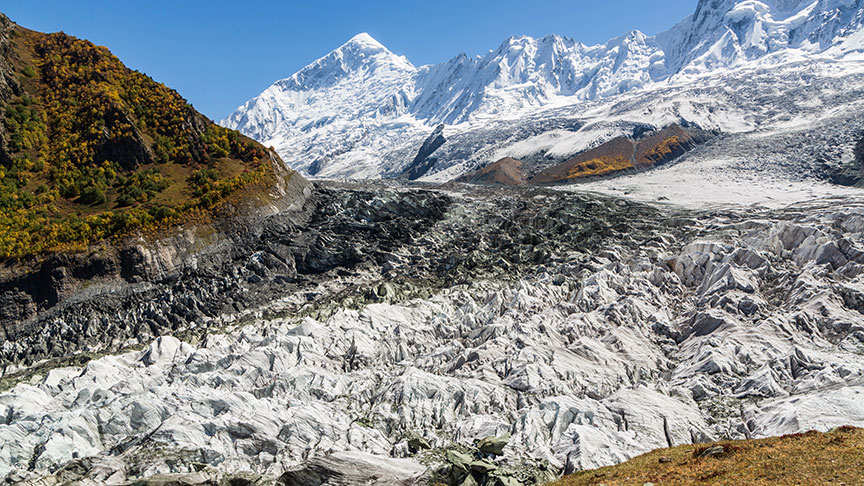Shaktiman Singh: Martha, do you remember how our team set off to do field research at the Swedish research station Abisko close to the Arctic Circle in 2019? We were charting glaciers and you were my first really good intern. Our team worked wonderfully well together.
Martha Schuchardt: How could I forget! I was so happy that a DAAD scholarship had given me the opportunity right at the start of my studies to immerse myself in the work of an international research group. It marked the beginning of a lot of new things for me: as my second supervisor, you later supported me while I was writing my bachelor’s thesis on the analysis of long-term weather data. Furthermore, after those three months I knew exactly which area of science I wished to work in: remote sensing in polar and glacier research.
Shaktiman Singh: I’m delighted to hear that. You already knew a great deal at the time. I really appreciate the many skills that my students – especially those from Germany – bring with them, such as vital technological knowledge from their studies and everyday lives.
Martha Schuchardt: I would say that you coaxed my knowledge out of me – with your professional and personal openness, your respectful way of communicating and the appreciation you showed me. It was only through our exchanges that I realised that I did, in fact, already have some specialist knowledge. A degree in geography is very interdisciplinary in Germany, so at first it’s hard to work out whether you know a lot or nothing at all. The internship with you in Sweden gave me self-confidence on many different levels.



